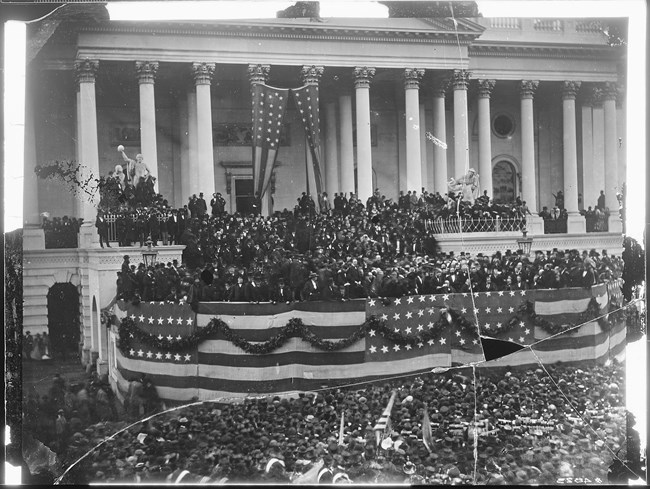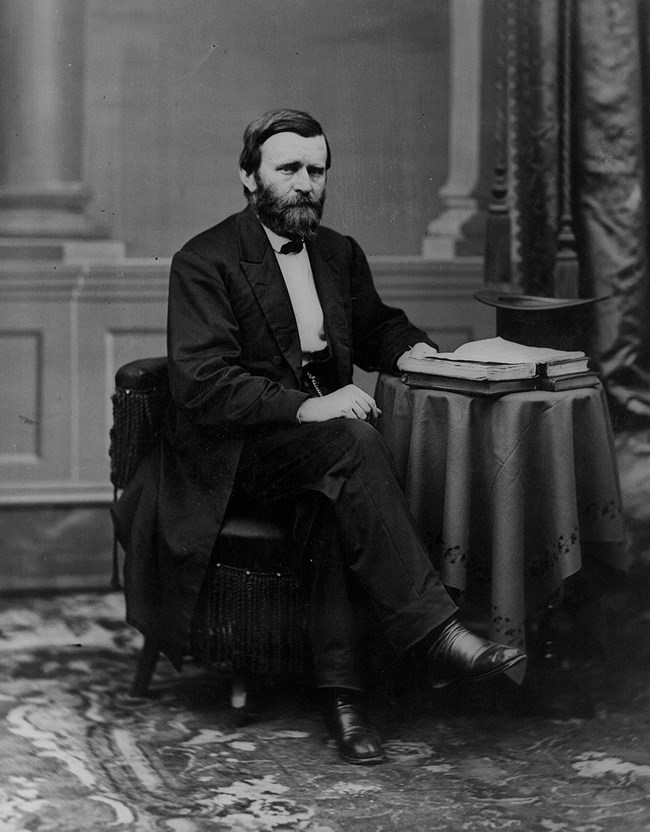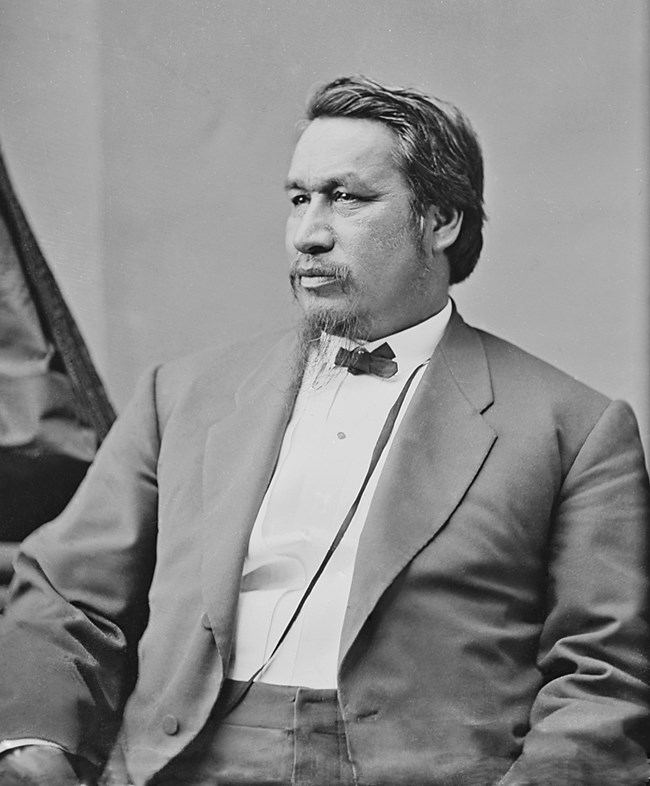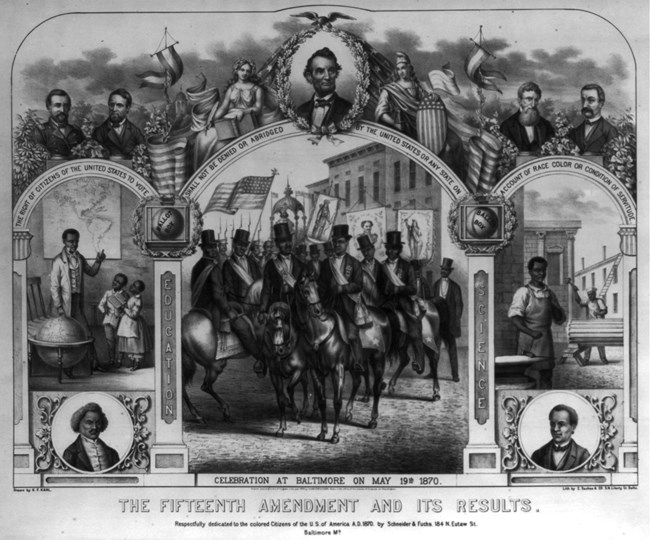Last updated: July 22, 2021
Article
Presidency (1869-1877)

National Archives at College Park
On March 4, 1869, Ulysses S. Grant was sworn in as the 18th President of the United States. During his inauguration speech, Grant urged for the ratifiction of the 15th Amendment and for the "propert treatment of the original occupants of this land—the Indians one deserving of careful study. I will favor any course toward them which tends to their civilization and ultimate citizenship."

Library of Congress

Library of Congress
In order to protect white settlement of the west, Grant rigorously enforced the relocation of Indians onto large reservations. His view was that with training “the Indian (can) be made a useful and productive member of society by proper teaching and treatment.” He appointed Brig. Gen. Ely S. Parker, a Seneca, to be commissioner of Indian Affairs. Grant’s policy of destruction of the traditional Indian culture produced poor results during the 8 years of his administration.

Library of Congress
